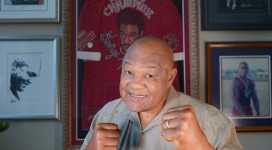
Every October, opinions and voices among Christians about whether or not to celebrate Halloween resurface, week after week, over and over again.
Some churches take this opportunity to teach their believers how to 'set themselves apart' and resist secular culture, while others want to take this opportunity to 'embrace culture' and 'go out into the community'.
In the midst of the apparent confrontation, there are also neutral voices who hope that we can look at Halloween objectively.
I, however, wish to propose a rethinking of Halloween from 'dismissing' to 'replacing'.
Before I share and present my views, there are two important premises I need to make clear:
1: The church has the responsibility and mission to teach our congregations how to view secular culture and festivals from a biblical worldview. Halloween is undoubtedly a representative of today's secular culture, although the spiritual significance behind it has long since been diluted to the point that the vast majority of people don't even know anything about it. To a certain extent, the same is true of Christmas, which is now secularized and commercialized. I believe it is the responsibility of the Church to teach and guide believers in these areas, especially when it comes to controversial holidays such as Halloween.
2: The relationship between Christianity and culture is quite intricate, and I personally lean more toward the idea that the Christian Church has a mission to regenerate culture. We can be anti-culture or reject certain social norms, but we must know we do not live in a vacuum. Faced with the reality of the world and the cultures rooted in our societies, our best practice as Christians is to change and regenerate our communities. Uncritical embrace leads to the church losing its uniqueness and holiness, while thoughtless rejection leads to the church becoming disconnected from its community and friends of the gospel.
These two premises already have such rich discourse surrounding them, I am not inclined to elaborate further. I do bring them up to suggest that I believe the practical way forward in this season, more churches rather than families or individuals, is to renew and replace the existing culture of Halloween through a variety of ministries. The ministries are our vehicles for renewing the culture.
First, we need to realize that we cannot do away with Halloween. We can personally and subjectively cut off Halloween, but we don't have the ability or capacity to do away with the culture of Halloween, and we can't completely remove the influence of Halloween and the absolute gravity candy has on our children. As a father of four young children, I don't know how to completely remove that obsession with candy that my children have in their hearts every year during the Halloween season.
So, instead of canceling Halloween, can we update the culture of Halloween? Instead of boycotting Halloween, could we have a better way to replace the influence and impact that Halloween has on us? Instead of cutting ourselves off from Halloween, are there better ways we can reach out and invite our neighbors?
1: Alternative Gatherings
Churches might consider starting some replacement parties, including a Harvest Thanksgiving Rally, or serving candy in the church parking lot by decorating our cars with a biblical theme. Known in North America as Trunk or Treat, by hosting these parties, churches can be a way for the children in our churches to deal with Halloween on the one hand, and a way for our churches to reach out and embrace the community as a way of inviting more people into our churches.
As I write this, I have just returned from a Trunk or Treat event at one of our local churches, where I took my 4 kids, picked up some candy, participated in the church's colorful trivia games, ate hot pizza, drank hot chocolate, and met new friends, and ended up going home with a full house. The church I served before also held a colorful Fall Harvest Carnival in our church's parking lot and stadium in a very similar format. Many families in the community came into our church to learn more about our church as a result of this, bringing opportunities and windows for future evangelism, and allowing our church to become more rooted in our community, not just the Chinese community.
Instead of cutting with Halloween and hiding on Halloween day, we can actually open the doors of our church and welcome families in the community to come into our church in different forms.
2: Family Gatherings
This year, on Halloween night, we will be inviting the children from our church to our home for a simple “Play Date” event for the children to play together. We will prepare hot chocolate and candies for the children, interspersed with some Bible quiz games, and provide some small prizes.
Meanwhile, parents can stay to talk, share, and enjoy hot chocolate and treats. We also welcome new friends to join us and get to know each other.
Instead of cutting off Halloween altogether, we can counteract the encroachment of secular culture by building a warm community culture and an atmosphere of love for one another, and by nurturing our children's faith in the community of the church.
3: Instead of Halloween, Celebrate Reformation Day
October 31st of each year, in addition to the traditional Western holiday of Halloween, is also the anniversary of the Reformation, a far-reaching event in the history of the Church. Unfortunately, people are far less enthusiastic about the Reformation Memorial Day than Halloween, and many brothers and sisters, including the church, know little about the significance of this Memorial Day. Would it be possible for the church to consider organizing a special event for the annual Reformation Memorial Day on the evening of October 31 every year to introduce the history of the Reformation and its significance for today, and to conduct lectures on different topics from the theological, church history, and pastoral perspectives, so as to enrich the church's Reformation Memorial Day activities?
Using Christian culture and the spirit of the Reformation to counter secular culture is the only way forward.
4: Insight into the culture behind Halloween
The question of the demonic images represented behind Halloween and whether there is any worship of them is not the focus of this article. What I want to explore is the deeper culture behind Halloween, and this is the part that churches should spend more time teaching their congregations, especially parents. We need to understand exactly what to be wary of and what to fight against. We need to have cultural insight.
First of all, the fact that our children are attracted to and controlled by candy, that deep down they crave it, that they crave pop culture and some level of belonging, is what we need to focus on. It is these cravings in our children that secular culture and commercial forces have gained insight into to capitalize on these holidays with great fanfare. Therefore, not participating in Halloween is not the ultimate solution; instead, training children to understand their inner longings is the way forward for the church. Simply boycotting Halloween will not fundamentally change the needs of children's hearts or eliminate their longing for fulfillment and identity.
At the same time, in teaching our children not to be attracted to candy, or not to be satisfied by candy, we need to reflect on ourselves. Are we also attracted to certain things? Are pursuing fulfillment outside of God? Are we seeking success, fame, and status in the world? If the answer is yes, then how can we teach our children not to give in to candy on Halloween?
Second, the culture behind Halloween also reflects the mentality of conformity, eye-catching, and being different. People want to fit in with the group through Halloween costumes and activities, and for children to embrace this culture of conformity: “Look, everyone is dressing up and it's so exciting, so I'm going to do the same.” We need to use fancy dress to draw attention to ourselves and be the most visible one in the room. These cultural connotations are what the church needs to be wary of, not just object to because of the demonic images of Halloween.
“We need to understand that if God graciously saves your child, then he/she may be alienated or even considered 'weird' in this culture. The faith of these disciplined children will not be accepted by the world. Instead, they will be detested by the world for their faithfulness to God's likeness (Mk 13:13; Jn 15:19). We need to raise this generation to be willing to be different from their peers, to be seemingly 'abnormal' for the sake of righteousness and justice. Such parenting often runs counter to our natural inclination as parents.” (Excerpted from Family Discipleship by Matt Chandler, Adam Griffin)
Summary:
“Canceling” Halloween may be as simple as a slogan or a decision; but ‘replacing’ it requires practical commitment and ministry.
It may be easy to “cut” by closing the door and keeping the kids out, but it's much more difficult to open the door and lovingly accept and embrace the community.
Of course, we need to be “set apart,” but that doesn't mean we have to passively avoid it; we should be set apart from the world, but that doesn't mean we have to run away from Halloween.
The initials for “set apart 分别为圣” and “victory out of defeat 反败为胜” are the same (note: initials in Mandarin Pinyin are fbws).
Can we not be wary of Halloween, but at the same time, can we not be enthusiastic and sincere in receiving the community and our neighbors with love, and truly “fight back to win”, rather than just shouting slogans of “boycott Halloween”?
When we are not participating in Halloween activities, are we able to explain to our children the cultural harms of Halloween rationally and persuasively, and help them recognize the underlying culture of worldly gratification and eye candy?
***
Original article posted on Pastor Calvin Qin’s (秦路) personal blog, Defending the True Path in Courage (勇守真道) and is reposted with permission by the Gospel Herald. Edits for clarity and tone were made in the process of translating the original Chinese text into English.
Calvin Qin: Pastor Calvin Qin ha four young children with his wife. He is a visiting pastor at the Faith Chinese North America Baptist Church (北美浸信会信友堂), ministering mainly to young families and teens in the church. He had previously planted the Chinese Community Church of Indianapolis Northwest, and currently, studies at the Canadian Chinese School of Theology Vancouver, pursuing a D.Min..







